Meet the team
Core Investigators
Arc Core Investigators are fully funded with complete freedom to pursue curiosity-driven research agendas. They may also hold faculty positions at our partner institutions - Stanford, UC Berkeley and UCSF.
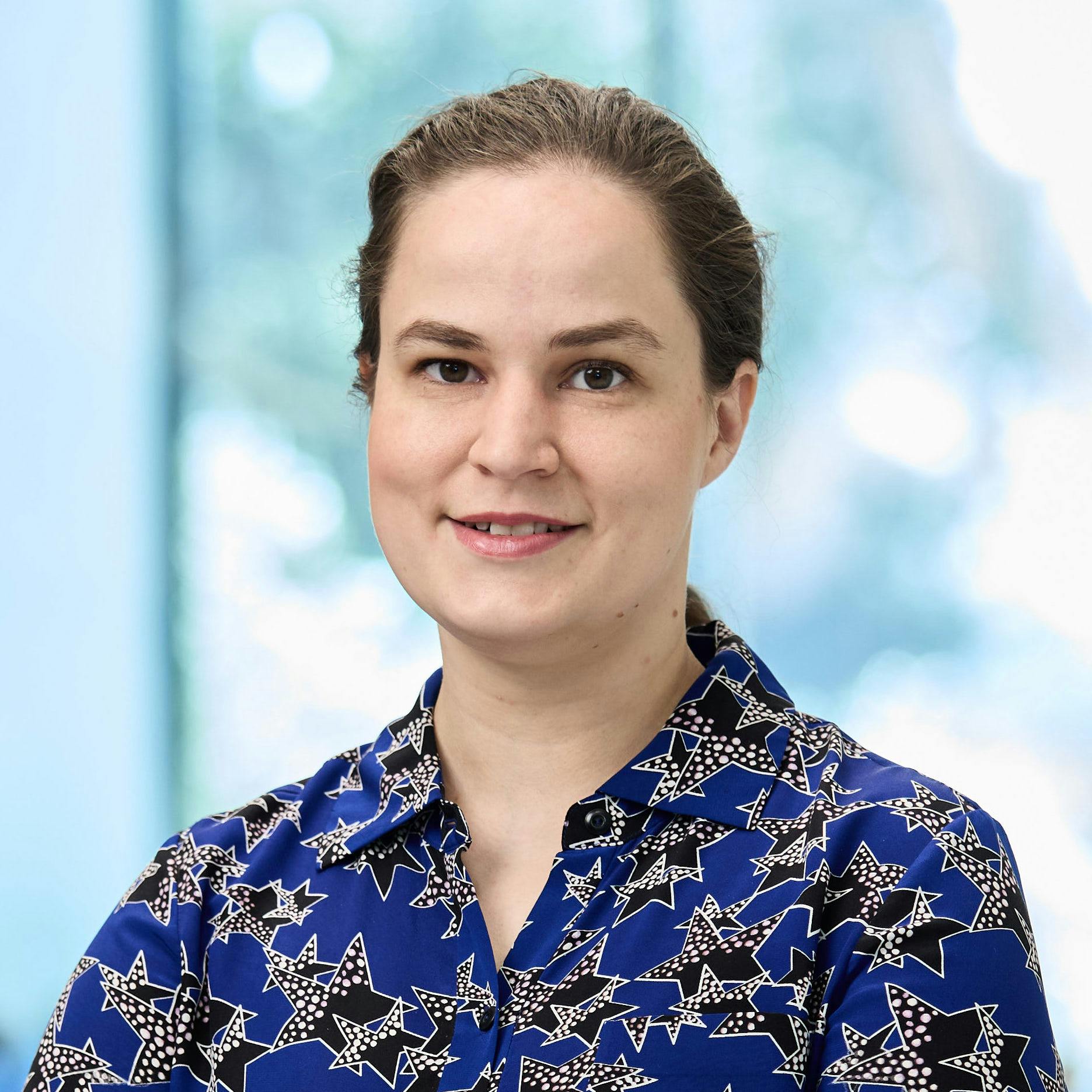
Executive Director and Core Investigator
Silvana Konermann
Silvana is an Assistant Professor of Biochemistry at Stanford. Her research laboratory aims to understand the molecular pathways that drive the development of Alzheimer’s disease using next-generation functional genomics, with the long-term goal of developing rationally targeted therapeutics for neurodegenerative disorders. She received her Ph.D. in Neuroscience from MIT. Silvana’s pioneering work on tools to directly perturb the transcriptomic landscape of the cell using CRISPR has been recognized by her faculty appointment as a Chan Zuckerberg Biohub Investigator and Hanna Gray Fellow of the Howard Hughes Medical Institute.

Cofounder and Core Investigator
Patrick Hsu
Patrick Hsu is Co-Founder of the Arc Institute and Assistant Professor of Bioengineering and Deb Faculty Fellow at the University of California, Berkeley. The Hsu lab works at the intersection of biology, engineering, and AI to develop technologies for biological programming and design. Patrick received A.M. and Ph.D. degrees from Harvard University and the Broad Institute, where he was an early pioneer of CRISPR-Cas9 technologies for genome editing. His research has been recognized by MIT Technology Review's Innovators Under 35, the Amgen Young Investigator Award, Forbes' 30 Under 30, the NIH Early Independence Award, and the Rainwater Prize for Innovative Early Career Scientist.

Core Investigator
Lingyin Li
Lingyin Li is a Professor in the Biochemistry Department and the ChEM-H institute at Stanford. She received her Ph.D at the University of Wisconsin-Madison with Dr. Laura Kiessling and performed postdoctoral studies with Dr. Timothy Mitchison at Harvard Medical School. The Li Laboratory has pioneered the development of chemical tools to define and manipulate new modulators of the innate immune STING pathway. Dr. Li is the recipient of the NIH New Innovator Award in 2017, the Ono Pharma Foundation Breakthrough Science Initiative Award in 2017, and the 2022 Eli Lilly Award in Biological Chemistry.
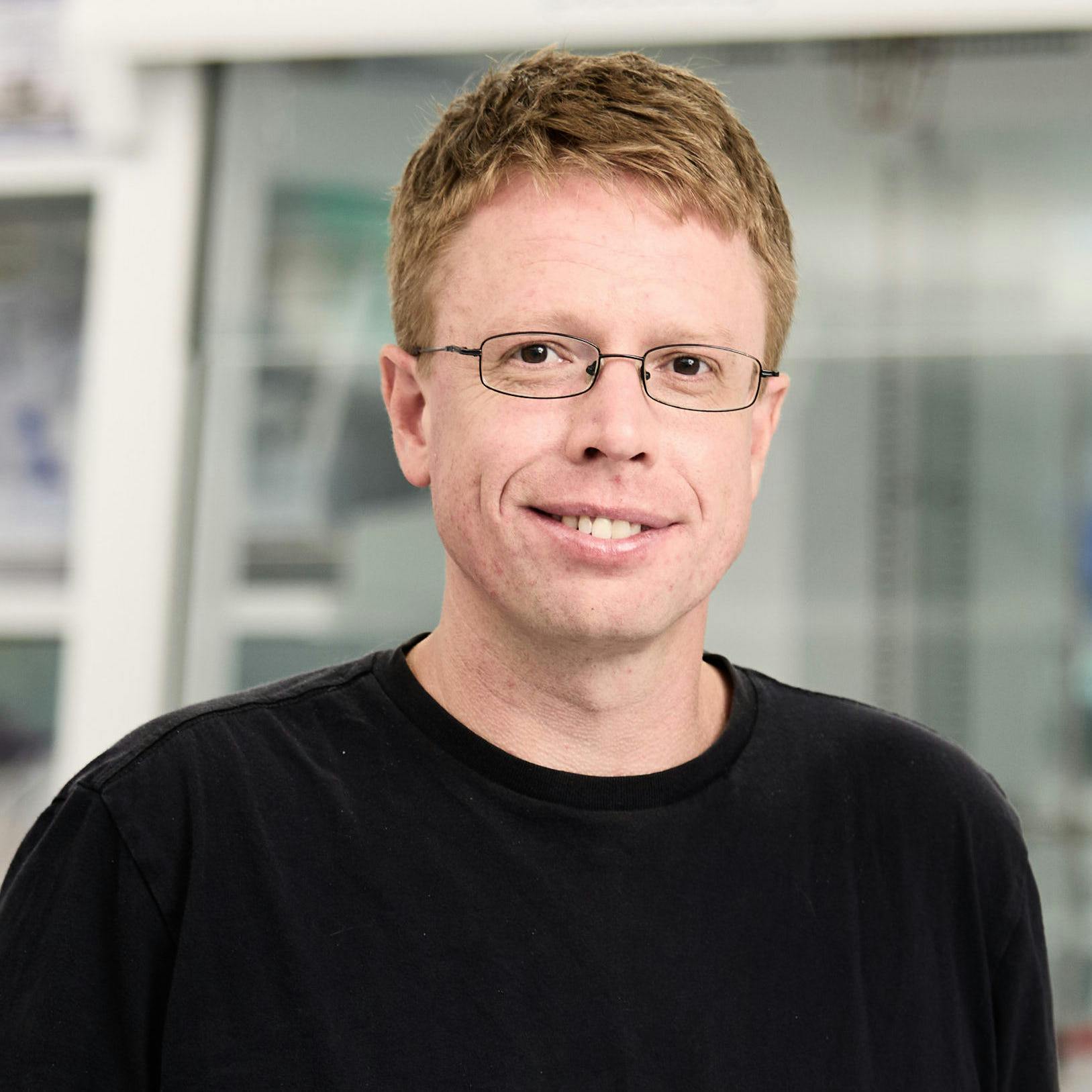
Core Investigator
Luke Gilbert
Luke Gilbert is an Associate Professor of Urology and of Cellular and Molecular Pharmacology at the University of California, San Francisco, and is affiliated with the Helen Diller Family Comprehensive Cancer Center and the Innovative Genomics Institute. He received his Ph.D. from MIT and completed his postdoctoral training at UCSF. Dr. Gilbert was an early pioneer in applying CRISPR technology to edit the epigenome (CRISPRi and CRISPRa), and continues to develop new strategies for editing and understanding human genetics and epigenetics at large scale, with a particular focus on cancer. Dr. Gilbert’s research has been recognized by a NIH Director’s New Innovator Award, a Pew-Stewart scholar for cancer research award, and the AAAS Martin and Rose Wachtel Cancer research award.

Core Investigator
Hani Goodarzi
Hani received his Ph.D. in quantitative and computational biology at Princeton University. He is an Associate Professor for the Department of Biochemistry and Biophysics at the University of California, San Francisco. He has received the Vilcek Prize for Creative Promise and the AACR-MPM Transformative Cancer Research Award. He is also a past recipient of the Martin and Rose Wachtel Award in Cancer Research and an American Cancer Society scholar. Hani has led his own research group at UCSF since 2016, working at the intersection of machine learning and cancer biology. His team brings together a mix of students and researchers across a range of backgrounds and experiences to tackle fundamental challenges facing life sciences. In a number of studies, his lab has used computational tools to show how RNA-encoded information is over-written by cancer cells to drive pathological progression of this disease. These discoveries have uncovered new ways through which we can target human cancers.

Core Investigator
Felix Horns
Felix Horns is an Assistant Professor of Genetics at Stanford University. The Horns group works at the interface of synthetic biology and genomics to develop and apply technologies for monitoring and manipulating cells, with particular focus on the immune system and the brain. Felix received his Ph.D. in Biophysics from Stanford and performed postdoctoral studies at the California Institute of Technology. His research has been recognized by the Burroughs Wellcome Fund Career Award at the Scientific Interface, the Chen Foundation fellowship, and the Helen Hay Whitney Foundation fellowship.

Core Investigator
Christoph Thaiss
Christoph A. Thaiss is an Assistant Professor of Pathology at Stanford University. His lab studies how interactions between environment, body, and brain impact physiology and disease over the lifespan. Christoph received his undergraduate training from the University of Bonn, Yale University, ETH Zurich, and the Broad Institute of MIT and Harvard. Following his Ph.D. studies at the Weizmann Institute of Science, he joined the faculty at the University of Pennsylvania. Among the recognitions he has received for his work are an NIH Director’s New Innovator Award, an NIDDK Catalyst Award, a Pew Biomedical Scholars Award, the Science & SciLifeLab Grand Prize for a Young Scientist, the Agilent Early Career Professor Award, a McKnight Brain Research Foundation Innovator Award, and a Burroughs Wellcome Fund Investigator in the Pathogenesis of Infectious Disease Award.

Core Investigator
Isha Jain
Isha is an Associate Investigator and Professor at Gladstone Institutes and UCSF. Prior to becoming a Core Investigator, Isha was part of the inaugural cohort of recipients of Arc's Innovation Investigator Award. The Jain Lab investigates how the body responds to changes in “what we breathe” and “what we eat”. More specifically, they are studying how variations in oxygen levels in the atmosphere and vitamin levels in the diet can affect disease progression. They are using this information to “turn the oxygen and vitamin dials” to treat a wide range of metabolic disorders from rare genetic diseases to age-associated degeneration.
Science Fellows
Arc Science Fellows are outstanding early career scientists who have the vision and exceptional track record to transition into a principal investigator role directly after doctoral training.
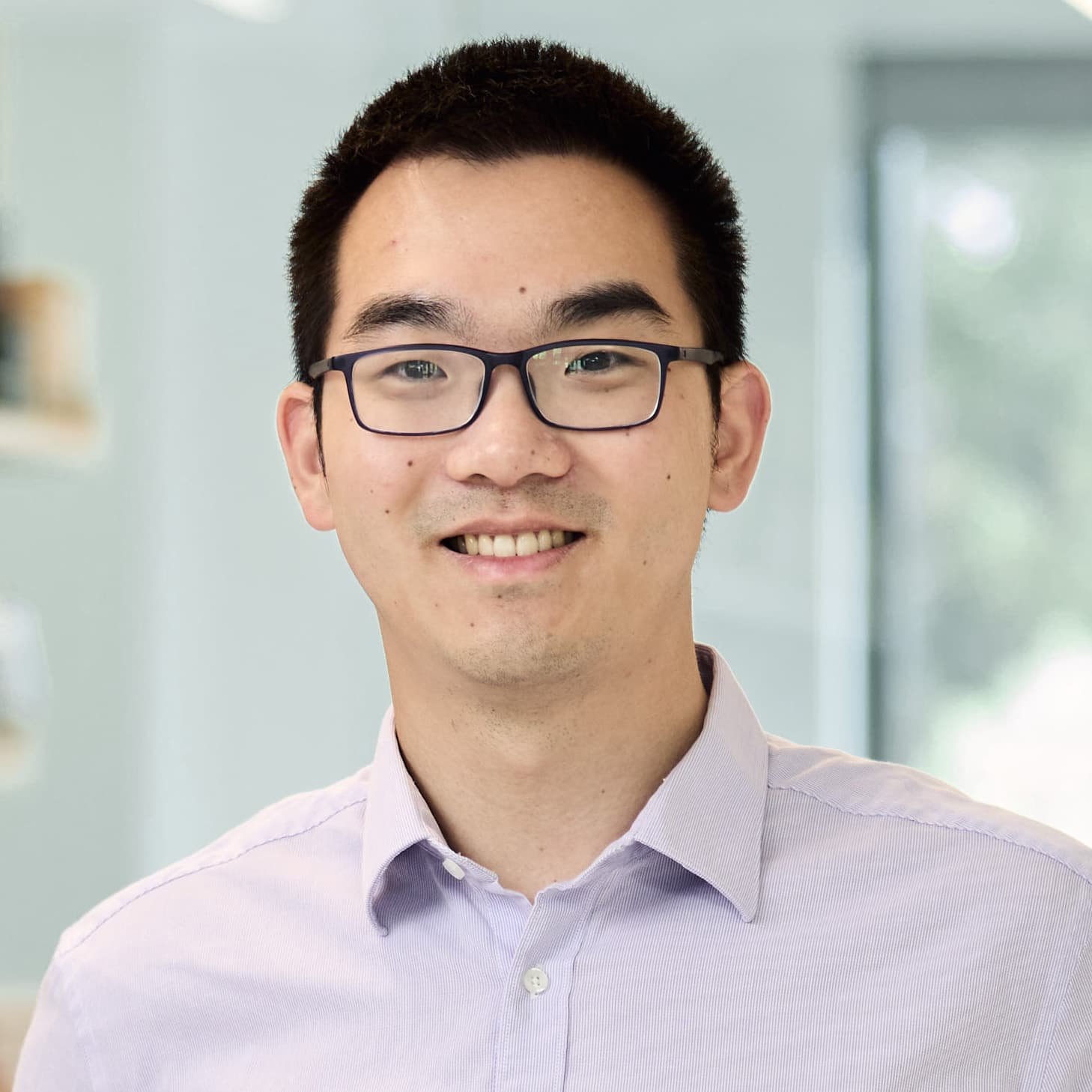
Science Fellow
Jingtian Zhou
Jingtian recently received his Ph.D. through the Bioinformatics and Systems Biology program at the University of California, San Diego, where he was supervised by Joseph Ecker at the Salk Institute. During his PhD, he explored the gene regulatory landscape of the mammalian brain through large-scale, integrative analysis of multimodal single-cell omics measurements. His research has charted epigenomic atlases of the human and mouse brain, and contributed to our understanding of how neuronal epigenomics directs brain connectivity. At Arc, Jingtian will develop single-cell multi-omics technologies and computational tools for quantitative modeling of gene expression dynamics to deepen our understanding of the complex regulatory networks governing brain function and disease.

Science Fellow
Uche Medoh
Uche received his B.S. in chemistry & molecular, cellular, and developmental biology (2019) from Yale University in New Haven, CT. He completed his M.Sc. in Medicine (2021) and Ph.D. in Biochemistry (2024) at Stanford University in the laboratory of Monther Abu-Remaileh. His research focused on metabolism and neurodegeneration and culminated in the discovery of the BMP synthase. He briefly performed postdoctoral studies with Dr. Nathanael Gray at Stanford University with an emphasis on metabolite probe design. As a Science Fellow at the Arc Institute, Uche is exploring the molecular basis of metabolism and aging more broadly for the development of ‘metabolite-inspired’ treatments.
Innovation Investigators in Residence
Arc Innovation Investigators in Residence are awardees whose research programs are especially collaborative with Arc's Core Investigators and Technology Centers. Their labs are either primarily or partially located at Arc headquarters, while they maintain their academic appointments at their home university.

Innovation Investigator
Brian Hie
Brian Hie is an Assistant Professor of Chemical Engineering at Stanford University, the Dieter Schwarz Foundation Stanford Data Science Faculty Fellow, and an Innovation Investigator at Arc Institute. He leads the Laboratory of Evolutionary Design, which conducts research at the intersection of machine learning and biology. Previously, Brian was a Stanford Science Fellow in Biochemistry, a researcher at Meta AI, received his Ph.D. in Electrical Engineering and Computer Science from MIT, and his B.S. in Computer Science from Stanford.

Innovation Investigator
Maayan Levy
Maayan Levy is an Assistant Professor in the Department of Pathology at Stanford University. She leads the Levy lab, whose primary focus is on metabotherapy and the use of metabolites as vehicles and targets to prevent and treat diseases including inflammatory diseases, neurological diseases, and cancer. Previously, she held a position as an Assistant Professor at the Microbiology Department of the Perelman School of Medicine at the University of Pennsylvania, and received her Ph.D. in Immunology from the Weizmann Institute of Science.
Technology Centers
Arc Technology Centers are biotech-like R&D hubs that focus on technology invention, refinement, and benchmarking in five technological areas: Multi-Omics, Genome Engineering, Cellular Models, Mammalian Models and Computational. In parallel, they partner with our Core Investigators and their labs to unlock new discoveries across human complex diseases. Learn more about our Technology Centers.

CHIEF TECHNOLOGY OFFICER
Dave Burke
Dave leads engineering at Arc, with a focus on the Computational Technology Center and the Institute's infrastructure team. Dave joined Arc after fourteen years of leading Android engineering at Google, before which he was the CTO of Voxpilot. He received his BE and MEngSc in Electronic Engineering and his Ph.D. in Biomedical Engineering, all from University College Dublin. Dave's Ph.D. work involved mathematical modeling of brain electrical activity.
Multi-Omics
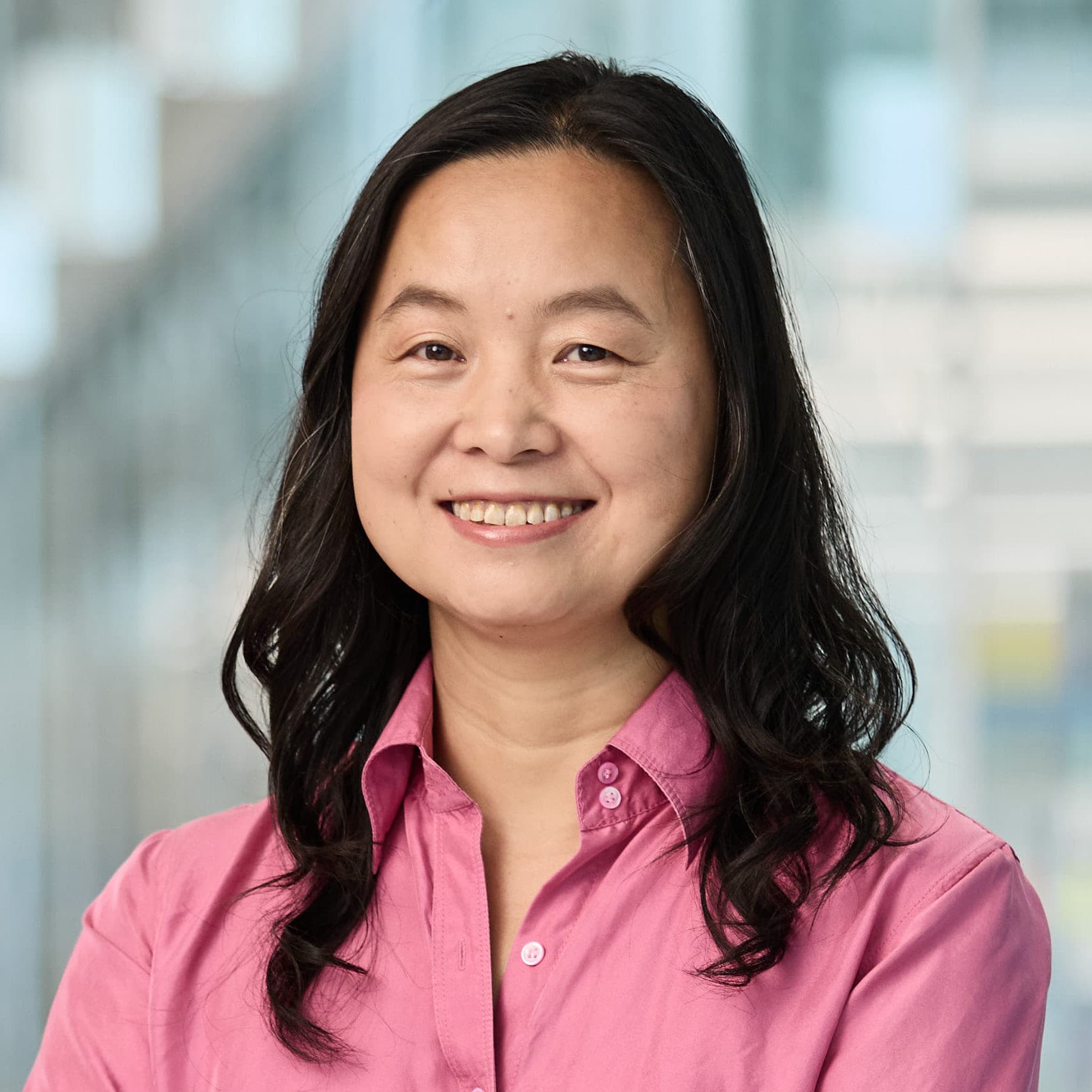
Senior Director, Multi-Omics
Nianzhen Li
Nianzhen leads Arc’s Multi-Omic Technology Center. She received her Ph.D. in Molecular, Cellular, and Developmental Biology from Iowa State University followed by post-doctoral research in Bioengineering at University of Washington. She started her career at Fluxion Biosciences and has held various leadership positions at Fluidigm, Mission Bio, and Deepcell.

Associate Director, Multi-Omics
Brian Yu
Brian leads the Genomics Platform within Arc’s Multi-Omics Technology Center. Brian earned his Ph.D. in Electrical Engineering from Stanford University, where his research focused on developing microfluidics-based metagenomic methods to explore environmental microbial dark matter. Before joining Arc, Brian helped build the Genomics Platform at CZ Biohub SF and developed high-throughput approaches for human microbiome research.
Computational Tech Center

Director, Bioinformatics
Alexander Dobin
Alex leads the Bioinformatics group within the Arc’s Computational Technology Center. He received his Ph.D. in Physics from the University of Minnesota. Alex previously pursued research at the Cold Spring Harbor Laboratory with a focus in Computational Biology, analyzing multi-omics data within the ENCODE consortium, developing RNA-seq tools STAR and STARsolo, and studying single-cell transcriptomics of pancreatic cancer.

Group Lead, Machine Learning
Yusuf Roohani
Yusuf leads the Machine Learning group within Arc’s Computational Technology Center. He received his Ph.D. in Biomedical Informatics from Stanford University, where his research focused on building machine learning models of cell state, particularly for predicting cellular response to perturbation. Before his Ph.D., Yusuf worked at GSK for four years as a Machine Learning Engineer, building computational models for early-stage drug discovery using high throughput screening data.
Genome Engineering Tech Center

Associate Director, Genome Engineering Technology Center
Paul Datlinger
Paul invented CROP-seq for single-cell CRISPR screens, and scifi-RNA-seq for high-throughput profiling. He received his Ph.D. in Molecular Medicine from the University of Vienna, Austria and led teams in academia and industry (CeMM, Illumina AI Lab, Xaira Therapeutics). His group is part of Arc's Virtual Cell Initiative, building the single-cell screens of the future to create a Virtual Cell model with a special focus on T cell engineering.

Associate Director, Molecular Engineering
Kristen Seim
Kristen leads the Molecular Engineering group within Arc’s Genome Engineering Technology Center. She earned her Ph.D. in Bioorganic Chemistry from the University of California, Berkeley, and did her postdoctoral training in Chemistry and Chemical Biology at Harvard University. Since then, Kristen has pivoted to the fields of synthetic biology and gene editing, establishing platforms for the functional screening and engineering of proteins at Bay Area startups including Antheia and Graphite Bio.

Associate Director, Functional Genomics
Tony Hua
Tony leads the Functional Genomics group within Arc’s Genome Engineering Technology Center. He received his Ph.D. in Medical Biophysics from the University of Toronto in Canada followed by a postdoctoral fellowship in Cancer Biology at the University of California, San Francisco. Subsequently, he has advanced cell therapy through cutting-edge work in functional genomics and synthetic biology, and developed high-throughput platforms to spearhead the next generation of smart cell therapy products at Senti Biosciences.
Cellular Models Tech Center

Associate Director, Stem Cell Platforms
Lorena Saavedra
Lorena leads the Stem Cell Platform team within Arc's Cellular Models Technology Center. She received her Ph.D. in Biology from the University of Puerto Rico, followed by a postdoctoral fellowship in Neuroscience and Cell Biology at Tufts University in Boston. Since then, Lorena has spearheaded the development and optimization of industry platforms for in vitro disease modeling and drug discovery at Neucyte using human stem cells, as well as nanoscale proteomics for clinical research at Molecular Decisions.
Mammalian Models Tech Center

Associate Director, In Vivo Functional Genomics
David Lara Astiaso
David leads the In vivo Functional Genomics group within Arc’s Mammalian Models Technology Center. He received his Ph.D. in Biology from The Weizmann Institute of Science, where he developed single-cell and epigenetic profiling methods to characterize genome regulatory elements shaping immune functions in vivo. Then he did his postdoctoral training at the University of Cambridge, where he used in vivo perturbation methods to study the roles of epigenetic regulators in hematopoietic differentiation and leukemic transformation.
Operations
The Arc Operations team provides the necessary infrastructure and support so that our scientists have the space to focus on tackling their most important ideas.
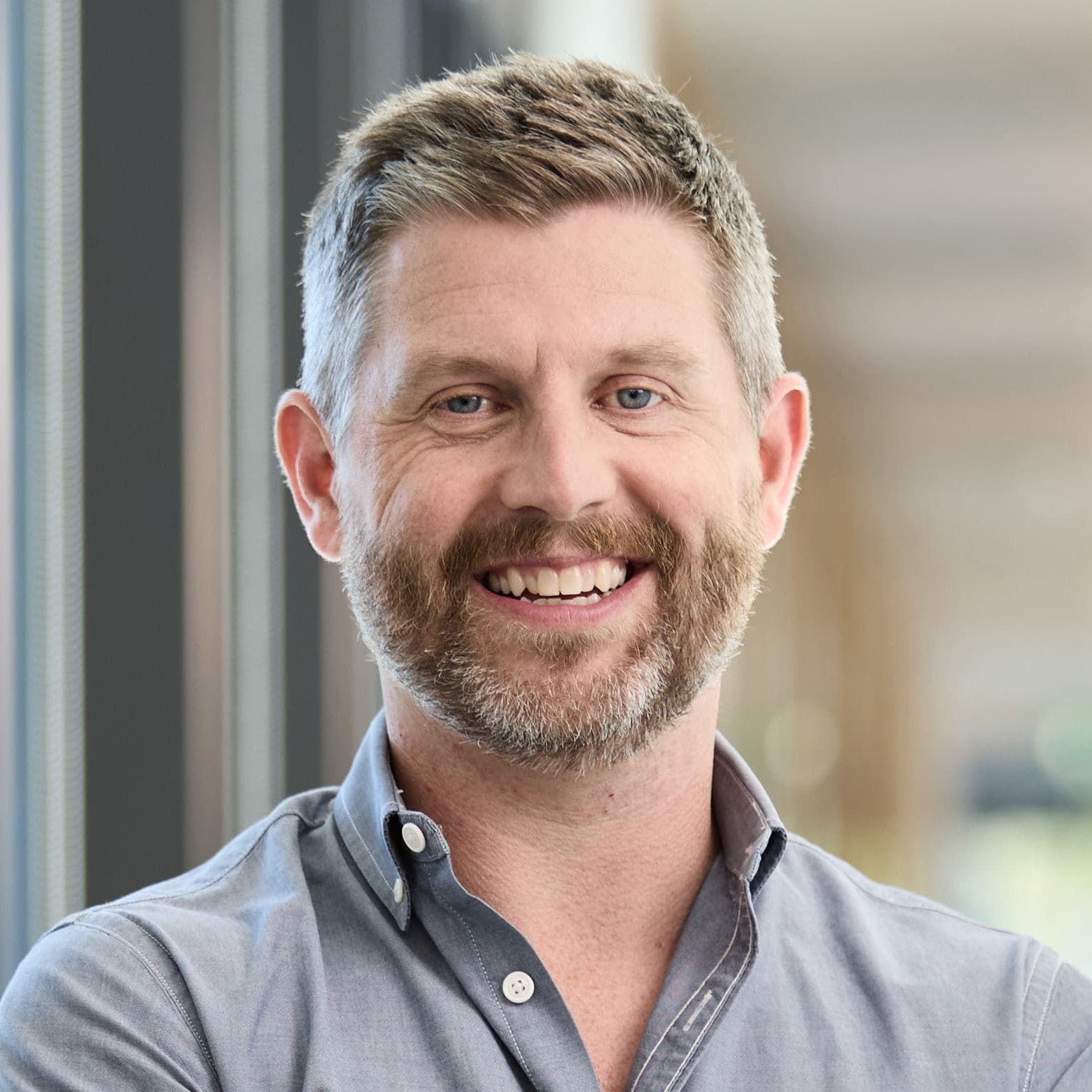
COO
Alden Woodrow
Alden leads operations at Arc. He has built teams and technologies in various industries including energy, aerospace, and transportation. Previously Alden held product management roles at Nuro, Uber, Google, Makani, and was the co-founder and CEO of Ike.
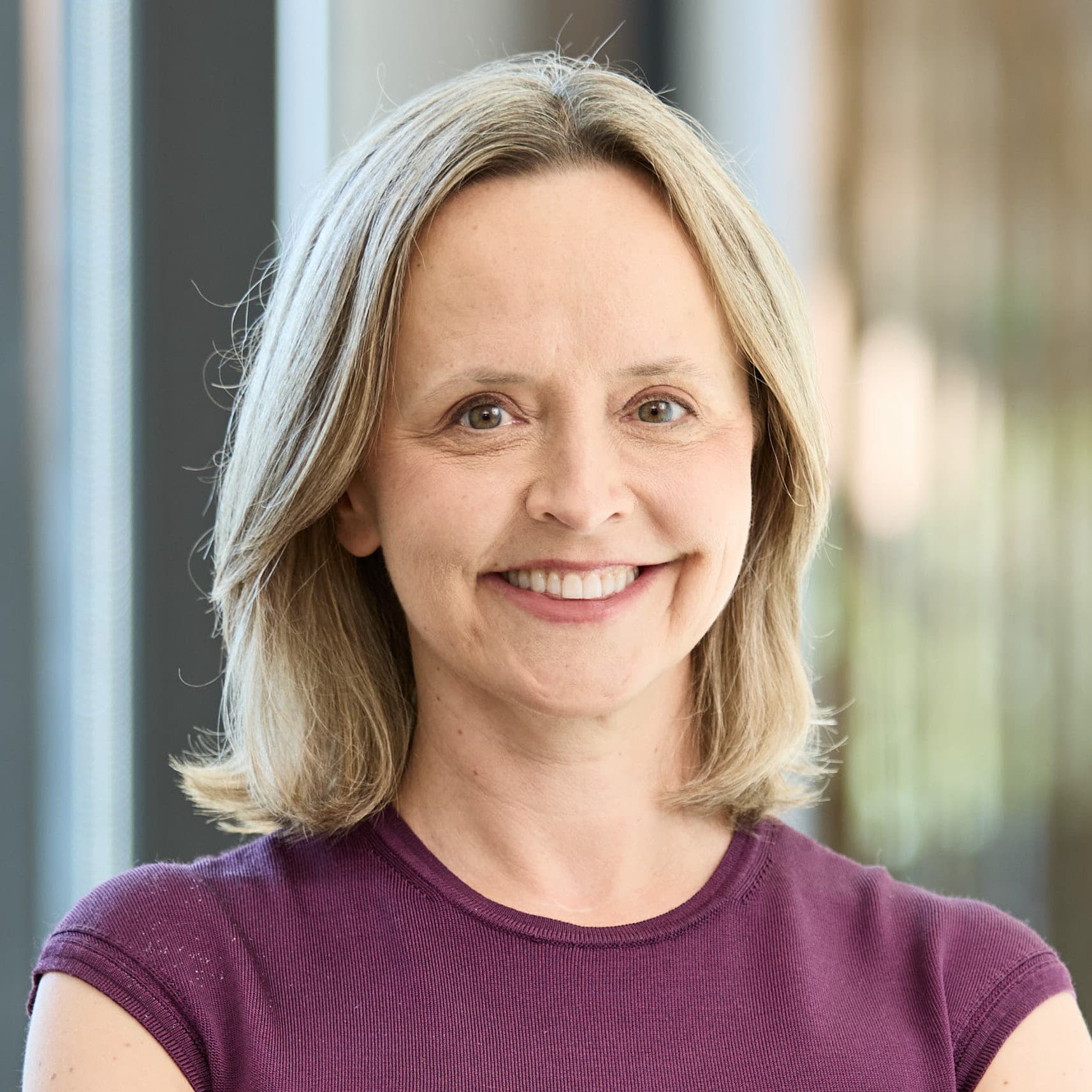
General Counsel
Julia Kazaks
Julia leads the legal team at Arc. She brings leadership experience from public company executive roles and two decades of work at Skadden.
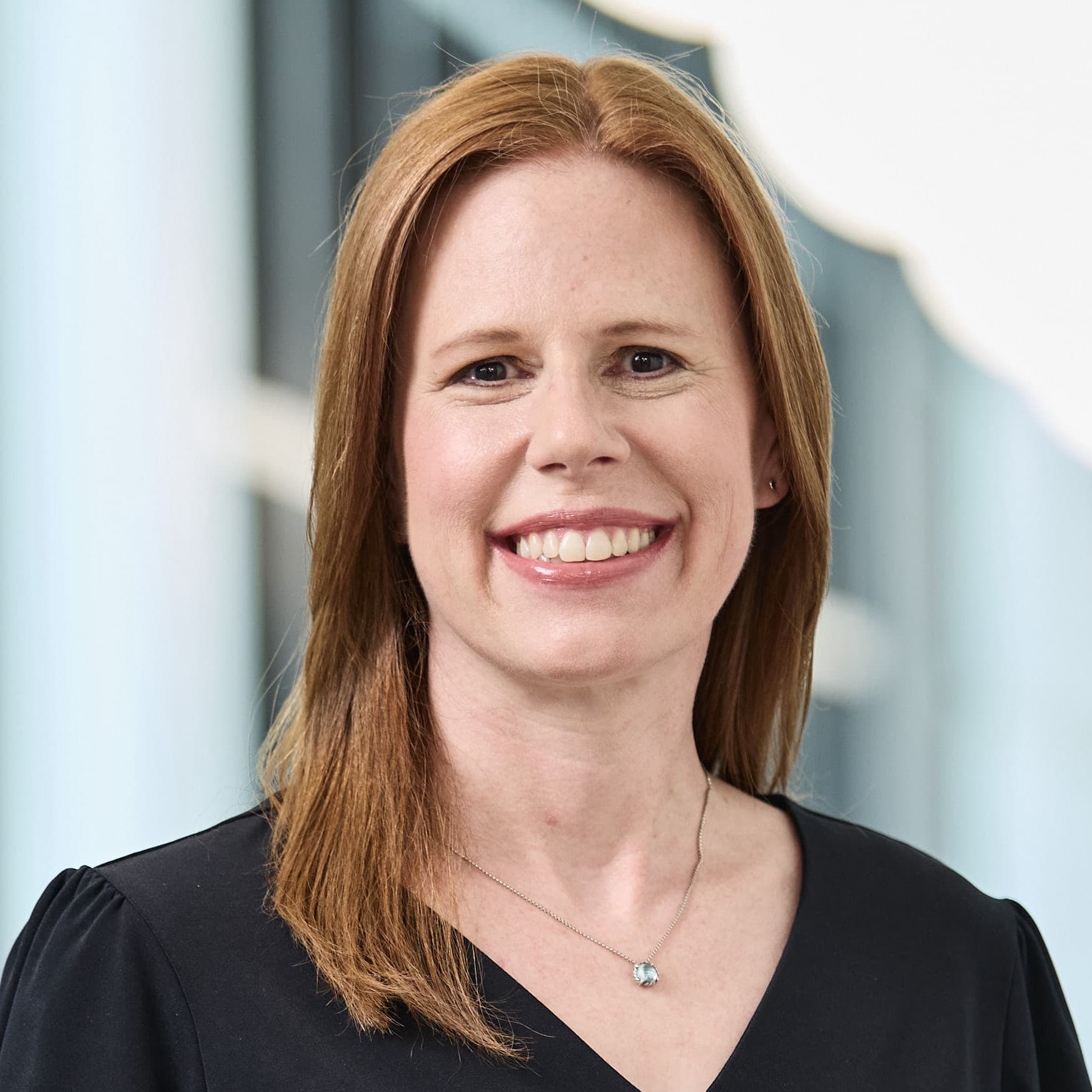
University Relations & Academic Affairs
Lynn Hendrickson
Lynn leads university partnerships for the Institute. Previous to Arc, Lynn held roles at the Dana-Farber Cancer Institute, Mount Sinai Medical Center, Addgene, and Massachusetts General Hospital.
Finance
Michael Teng
Michael leads finance operations at the Institute. He previously held finance and partnership roles at Uber, Counsyl, Facebook, and Morgan Stanley.
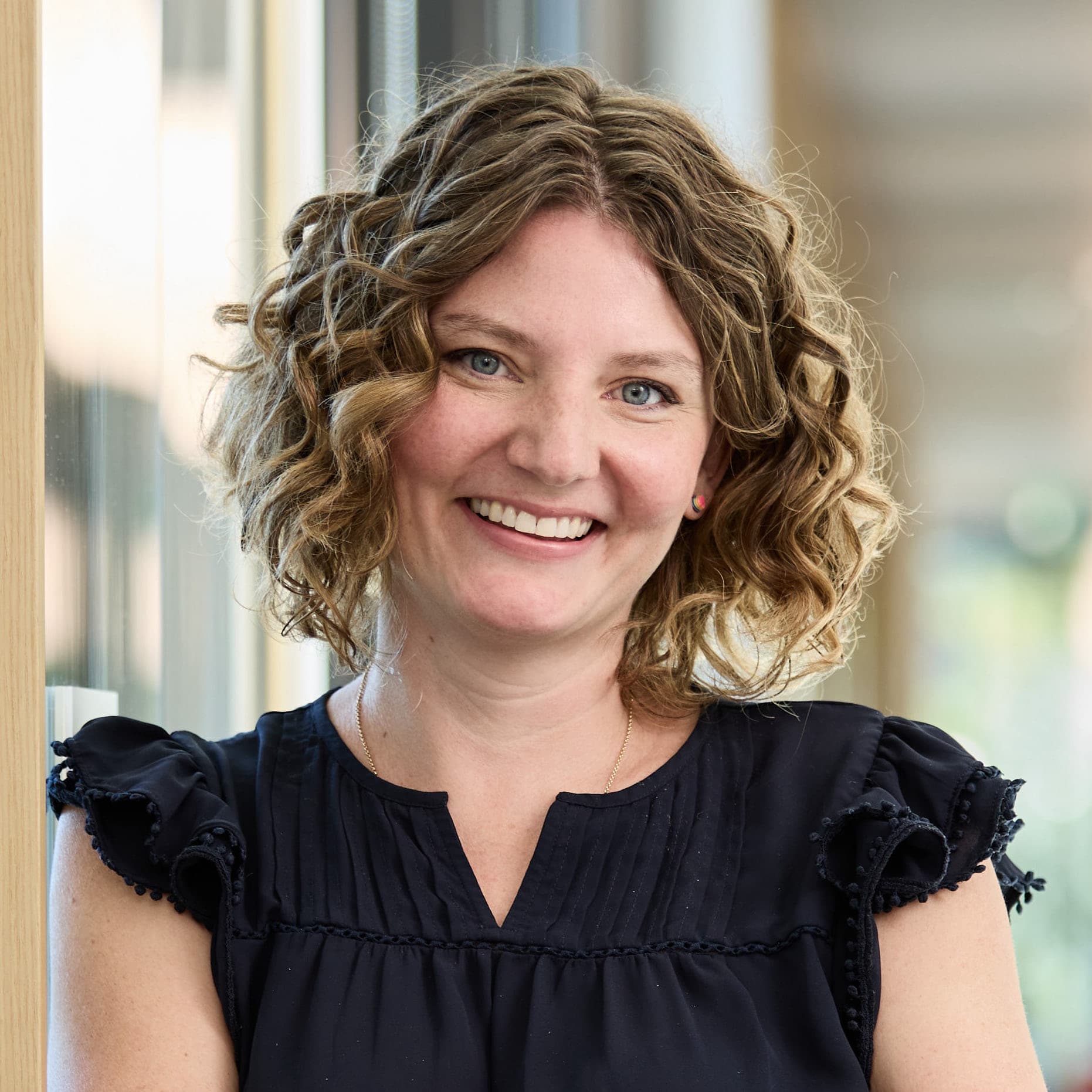
People
Therese Costello
Therese is the Head of People at Arc Institute. She spent the last decade company building at mission driven organizations, including Good Eggs and most recently Collective Health.
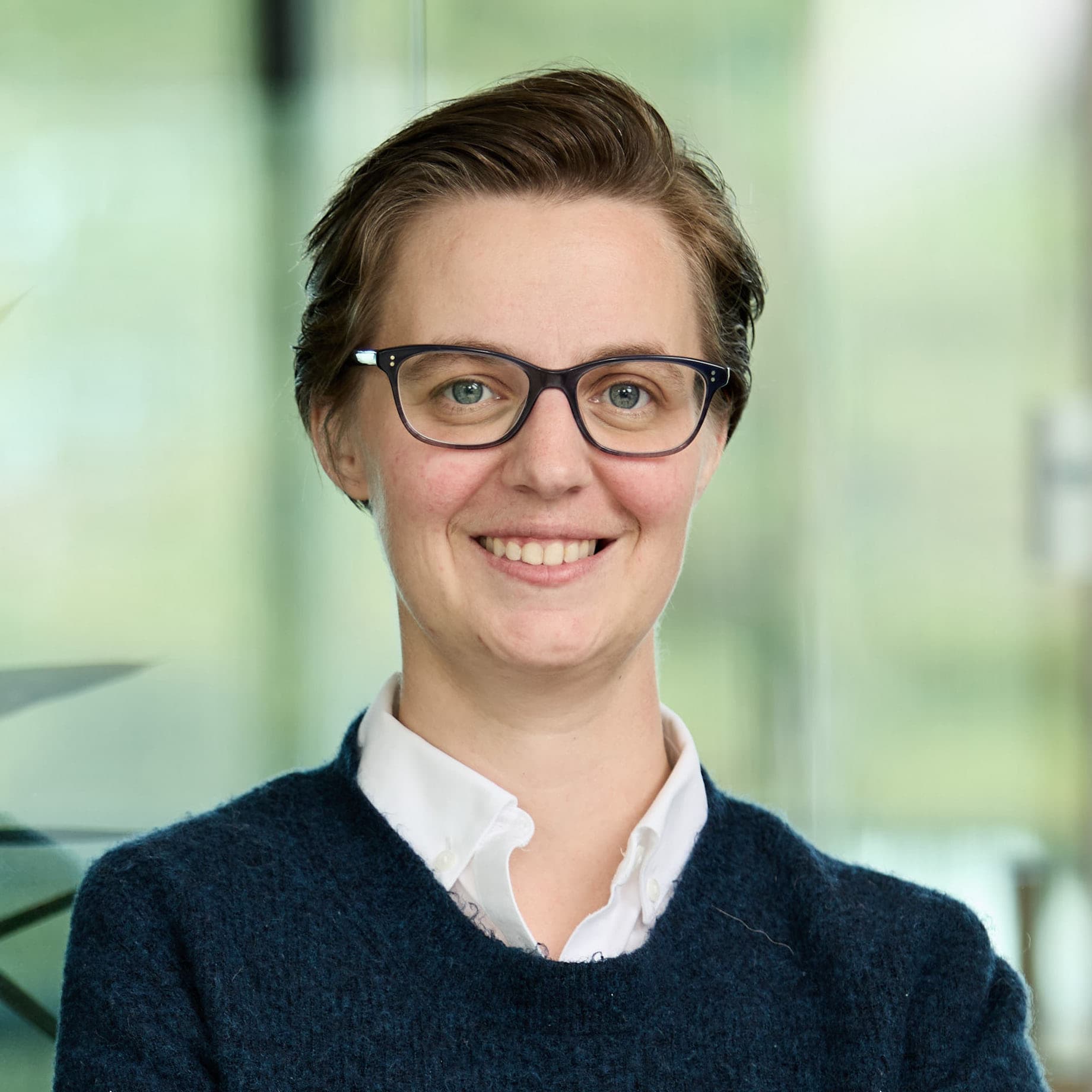
Talent Acquisition
Sarah Logia
Sarah leads our talent acquisition team and efforts to recruit innovative scientists to Arc Institute. Her recruiting leadership experience spans start ups to big tech with roles in NextRoll, Airbnb and Meta.

IT
Scott Newins
Scott is the Head of IT at Arc. He brings experience from working in Federal and Biotech environments with a focus in providing technology service, cybersecurity best practices and partnership excellence.

Communications
Joseph Caputo
Joseph leads communications and media relations at Arc. Previously, he held roles at Cell Press and the Harvard Stem Cell Institute.

Intellectual Property & Licensing
Rachel Senturia
Rachel leads intellectual property and licensing at Arc. Previously, she held roles at startups and the law firms of Cooley and Wilson Sonsini.

Scientific Operations
Silke Nock
Silke leads scientific operations at the institute. She brings extensive experience from roles at HHMI, UCSF, and most recently, at Altos Labs.
Board of Directors

Nat Friedman
Investor and entrepreneur Nat Friedman is the former CEO of software developer platform GitHub, where he led the launch of the Copilot tool, one of the first broadly-used AI products. Nat enjoys pushing the boundaries of technology, most recently as the co-creator of the Vesuvius Challenge, an ML and computer vision competition to read the volcano-carbonized papyrus scrolls of Herculaneum. Nat has been advising Arc since 2021.

Reid Hoffman
Entrepreneur, executive, and investor Reid Hoffman co-founded LinkedIn, the world’s largest professional network, and has been at Greylock since 2009. Before starting LinkedIn, Reid served as Executive Vice President at PayPal, where he was also a founding board member. Reid serves on Microsoft’s Board of Directors as well as some other company boards and several not-for-profit boards, including CZI Biohub, the Stanford Institute for Human-Centered AI, and the MacArthur Foundation’s Lever for Change.

Susan Li
As CFO of global technology pioneer Meta, Susan leads the company’s finance and facilities organizations. Prior to becoming CFO, Susan served as Vice President of Finance and spent more than a decade and a half leading Meta’s finance, business planning, and treasury teams. She joined Meta, then called Facebook, in 2008 and was previously an investment banking analyst at Morgan Stanley. She also served on the Board of Alaska Air Group from 2018 to 2023. Susan has received many accolades in recognition of her work, including Barron’s Most Influential Women in Finance, Forbes Power Women, and Forbes 40 under 40.